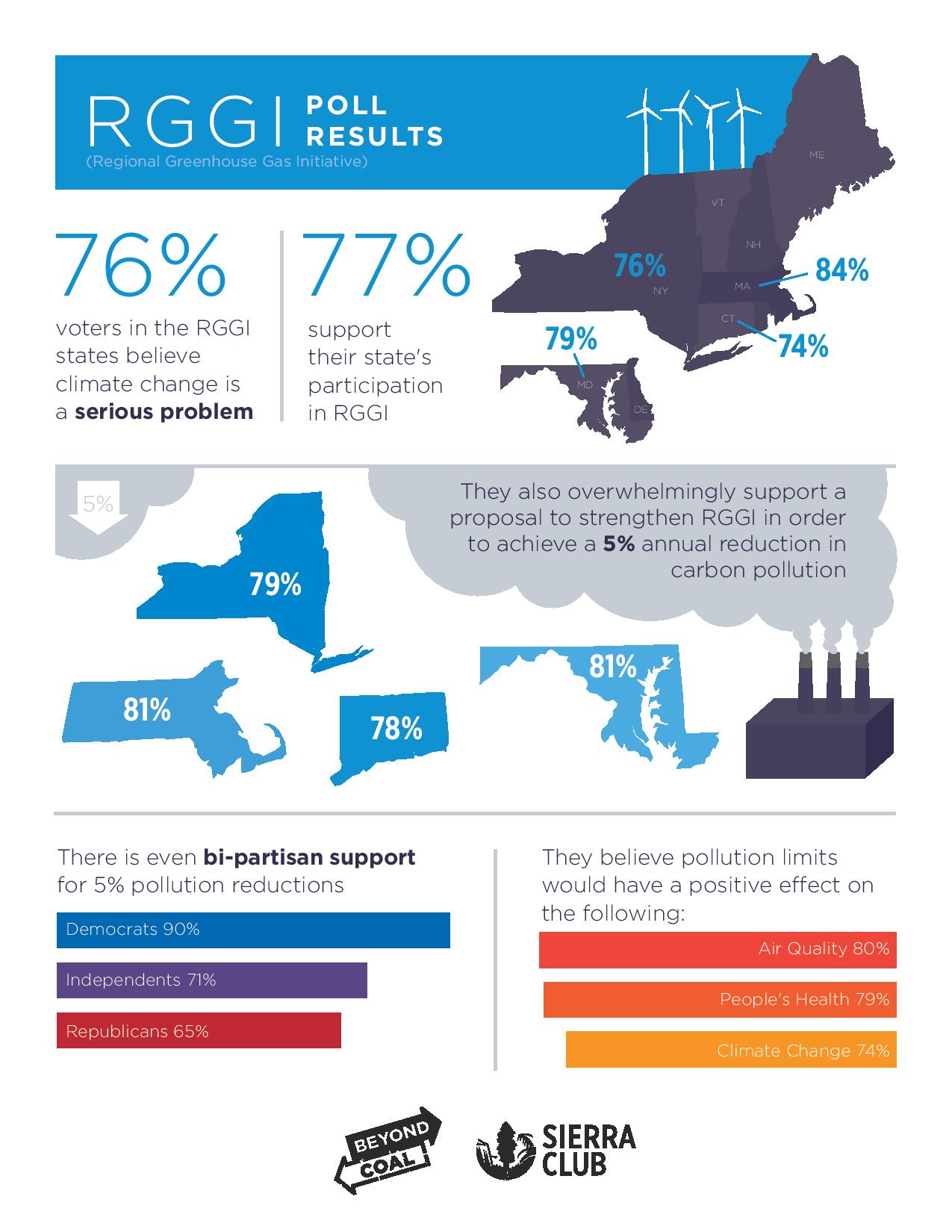A decade ago, on August 15, a group of Northeastern states led the nation and published a model rule to reduce carbon pollution from the country’s largest source: dirty coal, oil, and gas power plants. Since the Regional Greenhouse Gas Initiative (RGGI) program started, pollution has plummeted, the economy has grown, consumers have saved billions of dollars, and thousands of jobs have been created.
Now, on its tenth anniversary, a new poll shows continued overwhelming popularity of these climate actions by Northeast states: 77 percent of voters in the region support their state’s involvement in the RGGI program. This remarkable level of support actually increases to 79 percent when you ask those voters whether the RGGI states should continue their progress and reduce carbon pollution from power plants by five percent annually from 2020 levels through 2030, the amount needed to ensure states hit their climate goals as part of the ongoing 2016 Program Review.
You read that right: nearly eight in ten Northeast voters support a stronger and more just future for the Regional Greenhouse Gas Initiative. Poll participants believe that strengthening RGGI will have a positive effect on air quality, public health and the environment.
These poll numbers shouldn’t come as a huge surprise - we’ve seen time and time again across the U.S. that Americans want clean energy instead of dirty fossil fuels like coal. They know clean energy means less air and water pollution, more jobs, and economic boost.
On the heels of this great anniversary news come calls for the states to continue and strengthen the RGGI program, as part of an ongoing regular review. An analysis done by Synapse Energy Economics concluded that the most cost effective way to reach the states’ climate targets includes improvements to RGGI, and those actions would generate nearly 60,000 jobs per year through 2030 and save more than $25 billion region-wide. With those numbers it should be no surprise that nearly 100 major businesses and investors called on the RGGI member states to put in place future pollution targets that decline five percent annually from 2020 levels through 2030.
As we celebrate the Northeast’s milestone of climate leadership, it is time for the states participating in RGGI to take that overwhelmingly popular step and set a strong and just future for the next ten years and beyond.
